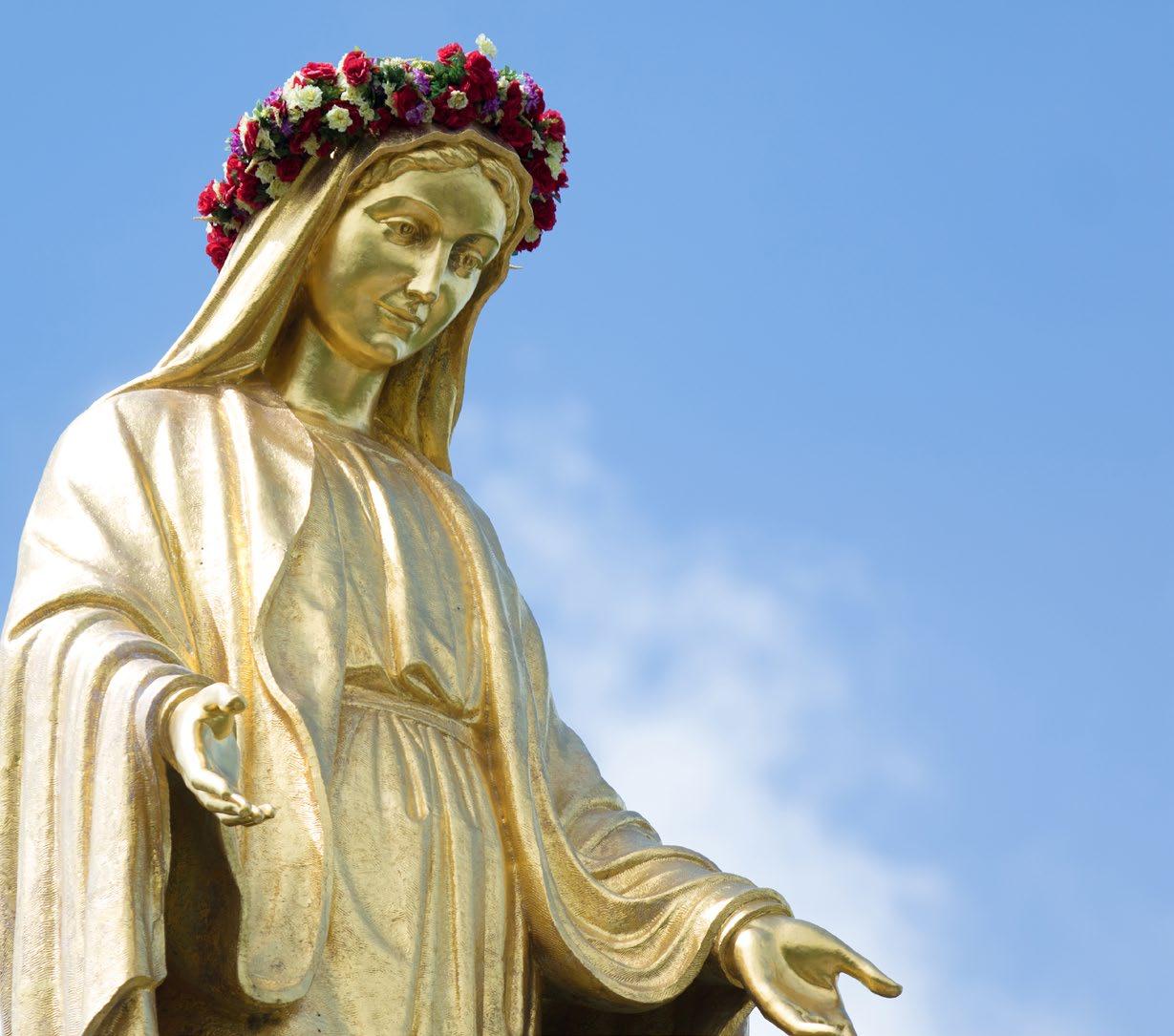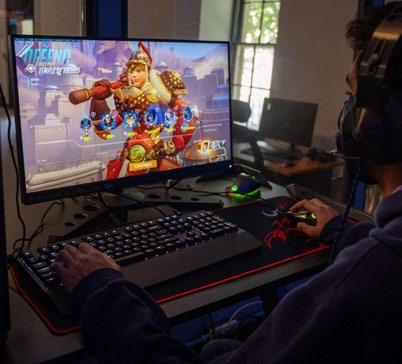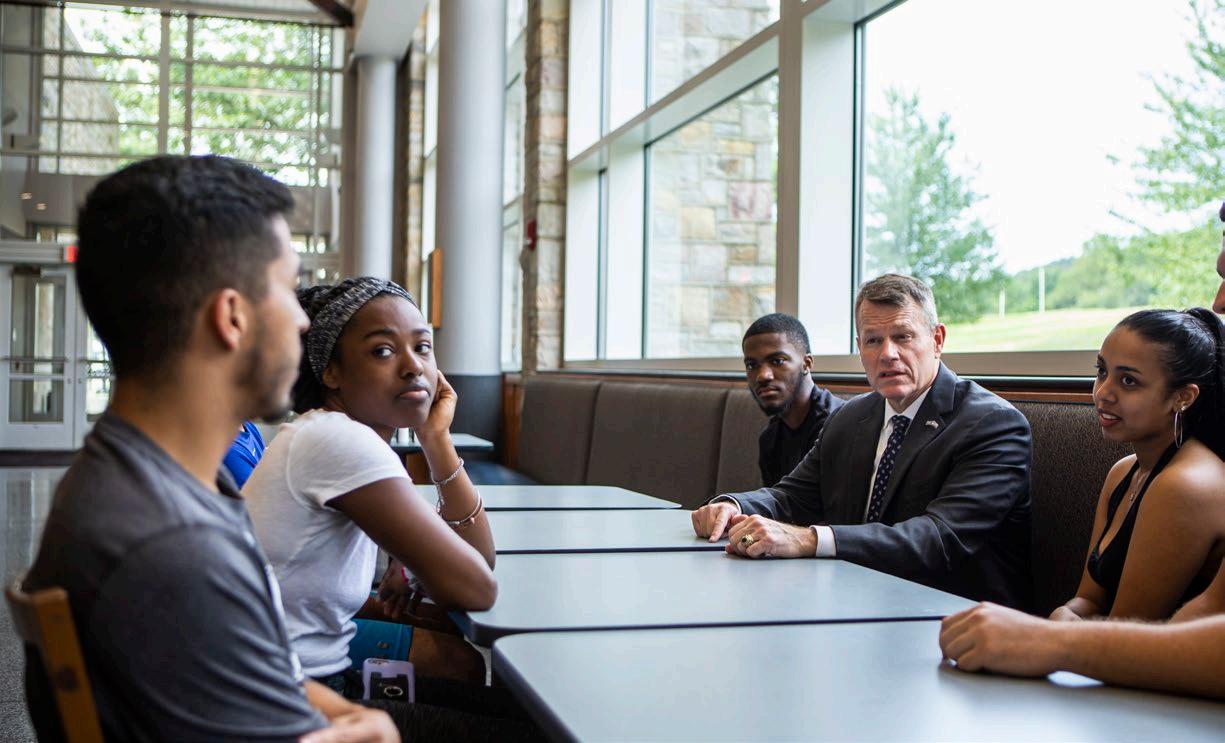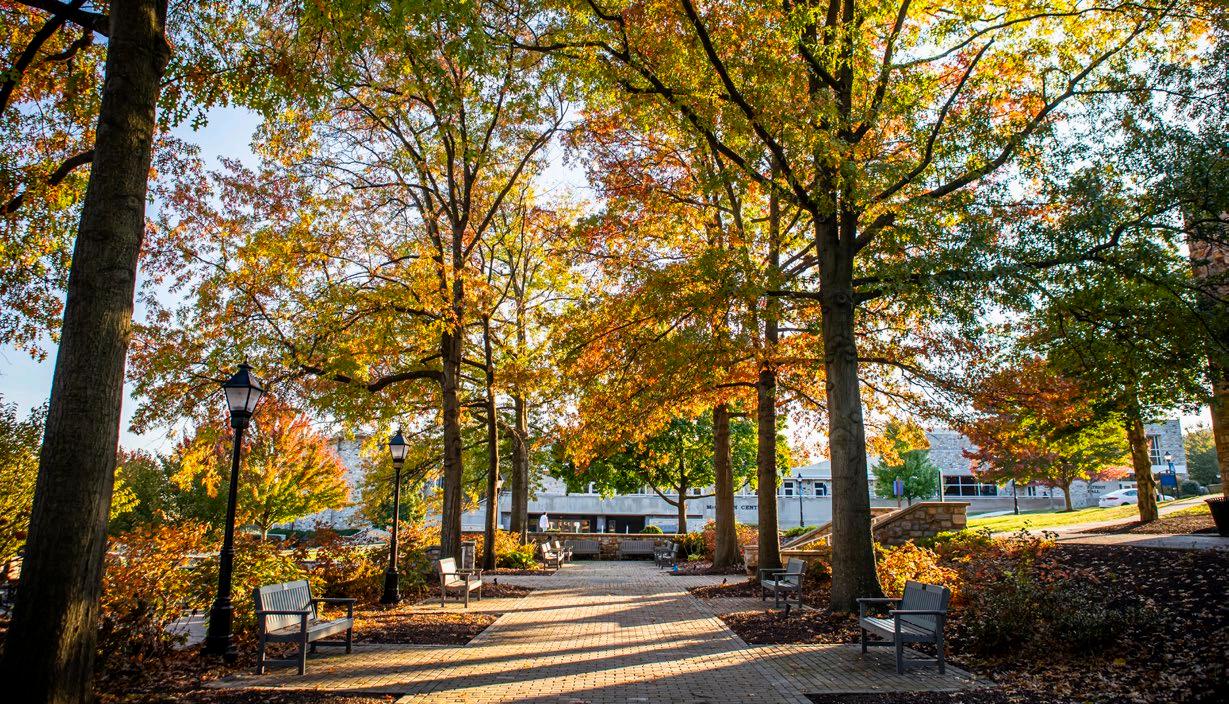
2 minute read
President Trainor's Letter
Pride in our university typically swells when student-athletes win a championship, student scholars earn a prestigious fellowship or faculty secure major grants for their work. While I can point to numerous examples of the latter two achievements this year, sadly there has been very little athletic competition to unite the Mount community in rooting for our athletic heroes for eight months.
However, Mount pride has grown in a new way. The campus operational environment this semester has brought the entire Mount community together in caring about each other’s health and safety. Our students, faculty, staff and administrators are all Mount heroes for first planning to be able to live and learn on campus this fall and then uniting to embrace our risk reduction measures to battle the novel coronavirus pandemic. In this issue of Mount Magazine, we put the spotlight on some of these heroes, who give us hope for the future.
Our cover story featuring five students whose parents, and in one case father and grandfather, graduated from the Mount inspires hope that the Mount values of faith, academic rigor, service, ethics and friendship, which have endured for more than two centuries, are being carried forward. When asked what makes the Mount a special place, the Honorable James P. Courtney Jr., C’60, said: “…If you have never been a part of that experience, no explanation could adequately describe it and if you have been a part of it, no explanation is necessary.” Judge Courtney sees the legacy of three of his children and his grandson, James P. Courtney IV, C’20, and a current MBA student, graduating from the Mount as confirmation that the Mount family will never cease to exist.
The Mount’s future looks brighter than ever, thanks to reimagining how we can thrive in an era of no walls and new tools. Dean of the School of Education Barbara Marinak, Ph.D., looks at how the university is reimaging higher education that is not bound by classroom spaces and brick and mortar buildings, and rethinking teaching and learning in light of new tools and strategies.
I also commend you to read the thoughtful essay by Assistant Professor of History Timothy Fritz, Ph.D., on the work of racial reconciliation at the Mount and in our country. He stresses our sacred duty to “strive toward a stronger and smarter campus community that reflects the experiences, passions and concerns of its constituents.” Right before the pandemic sent everyone home last spring, Dr. Fritz led Parker-Dailey Fellowship students on a trip to Charleston, South Carolina, to study racism and racial reconciliation. Junior Rachel Wheeler’s reflection on this learning experience notes the university’s efforts to better our community by eradicating racism while at the same time assigning Mounties personal responsibility to learn more about the history of oppression in our community.
TIMOTHY E. TRAINOR, PH.D. President











